AI is driving advancement in robotics and automation. It is perhaps impossible in practice to draw a clear line between AI and physical functions that AI can now manage. In the last ten years (2010-2019), industrial robots’ annual installations more than tripled, reaching 381 thousand units in factories worldwide.
Globally and in the UK, AI has gone through periods of development and periods of relative stagnation. However, in the longer run, the advances in symbolic programming enabled a greater understanding of high-level problem-solving intelligence, with special progress in tools and techniques to simulate or support complex expert reasoning in relatively well-structured domains – ideal for applications the workplace.
If we look at the subsequent developments in the UK, researchers are building autonomous robots that will use AI to identify and fix potholes in UK roads. Further, a £22.4 million worth National Robotarium to open in Edinburgh in 2022. In a move to revolutionise the food and hospitality industry, London-based startup Karakuri also has ambitious goals to bring robots and AI to the food industry with their robot chef canteen.
The majority view for the industry is that its impact will be positive, large, and widely spread across sectors, with uneven rates of uptake. Today, we take a look at some of the most revolutionary robot tech startups shaping the future of robotics engineering in the UK.
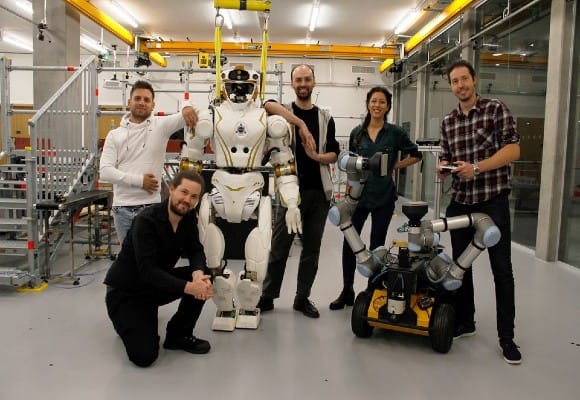
Touchlab
Founder/s: Zakareya Hussein
Founded year: 2018
Funding: NA
Edinburgh-based Touchlab has developed an electronic skin that instils robots with a human-like sense of touch and feel. Their electronic skin is thinner than human skin and can be wrapped around soft and hard surfaces to sense pressure and location. This product of Touchlab is used in applications including underwater, on-land, and more.
Earlier this year, the student-led VC, Creator Fund chose Touchlab for its first investment. Even Techstart Ventures took part in the funding round. The funding is being used to work with VR/AR experts and develop the human user experience for controlling their avatar.
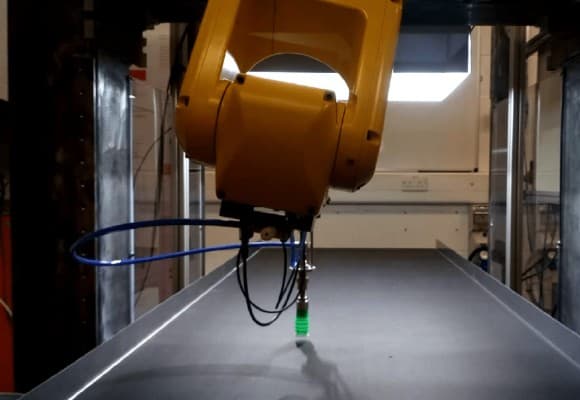
Recycleye
Founder/s: Peter Hedley, Victor Dewulf
Founded year: 2019
Funding: £1.2M
Recycleye, based out of London is an intelligent waste management startup. The company wants to solve the most serious problem in this century. Back in December last year, Recycleye secured £1.2 million in seed funding. The funding round was led by MMC Ventures and Playfair Capital along with participation from leading funds including Atypical Ventures, Creator Fund and eolos. It also received funds from Innovate UK and the European Union to develop a computer vision system with robotics to recover useful materials from the waste.
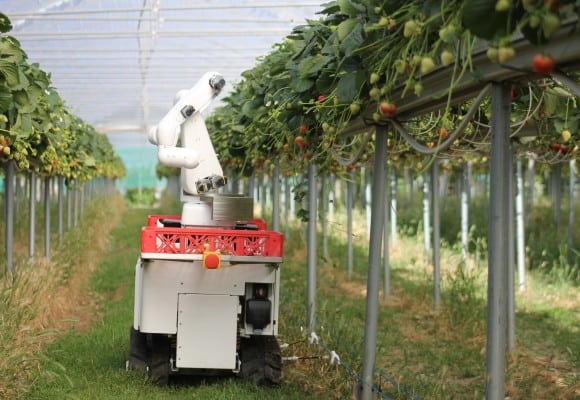
Dogtooth
Founder/s: Duncan Robertson, Ed Herbert, Mat Cook
Founded year: 2014
Funding: NA
Cambridge-based Dogtooth manufactures and supplies robotic harvesters. It offers soft fruit picking AI-powered harvest robots that identify, pick, harvest, and also grade ripe fruits. Also, capable of self-navigation between the crop rows. It is capable of picking at night times and at low temperatures and it utilises AI and computer vision technology for grading and navigation purposes.
Dating back to 2016, Dogtooth secured £60,000 funding from the Eastern Agri-Tech Growth Initiative to develop the robotic harvesting project.
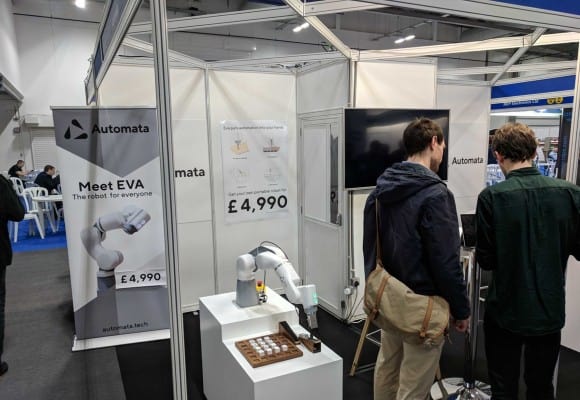
Automata
Founder/s: Mostafa ElSayed, Suryansh Chandra
Founded year: 2015
Funding: NA
Automata, another robotics startup from London developed a desktop robotic arm called Eva. It is a smaller, easier and cheaper robot arm than its counterparts. The company has brought in many innovations, including rebuilding the gearbox that runs the machine and the software called Choreograph that controls it.
In 2019, Automata raised $7.4 million (nearly £6.4 million) Series A funding from Hummingbird Ventures alongside firstminute Capital, Hardware Club, LocalGlobe, ABB, and Entrepreneur First. It was focused on the expansion of Automata’s team and ramping up the production of Eva.
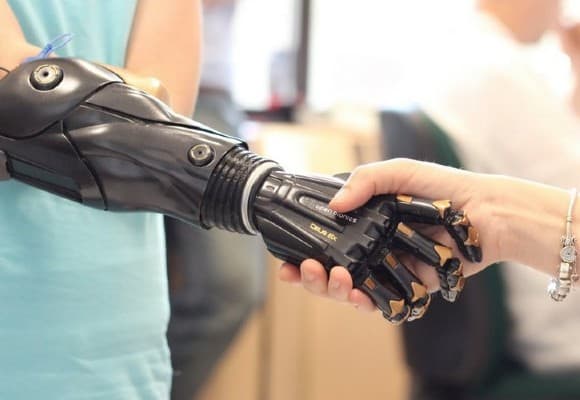
Open Bionics
Founder/s: Joel Gibbard, Samantha Payne
Founded year: 2014
Funding: £5M
Bristol-headquartered Open Bionics designs a low-cost robotic prosthetic hand using 3D printing. This robotic hand called ‘Hello Arm’ senses muscle contractions and expansions, understands muscle movements’ variations and performs the task much like a normal hand. It a low-cost and lightweight robotic hand and can give Iron Man-style arms for amputees.
In 2019, Open Bionics bagged $5.9 million (nearly £4.3 million) Series A funding from investors including Foresight Williams Technology EIS Fund, joined by Ananda Impact Ventures and Downing Ventures.
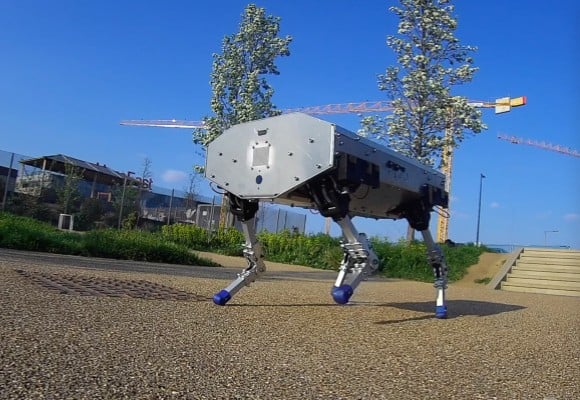
Zoa Robotics
Founder/s: Thiago Azevedo
Founded year: 2017
Funding: £88K
Zoa Robotics based in London develops highly mobile legged robots. The tele-operated robotic inspection service enhances resilience by reducing human close contact, reducing engineer travel requirements and strengthening engineer deployment flexibility. It is a strong contender to Boston Dynamic’s Spot robot that intends to automate routine inspection tasks.
Three years back, Zoa Robotics secured £85,000 seed funding via Britbots, a robotics crowdfunding platform. The investment was utilised to scaleup the existing prototype to carry heavier loads and for improved control and autonomy.
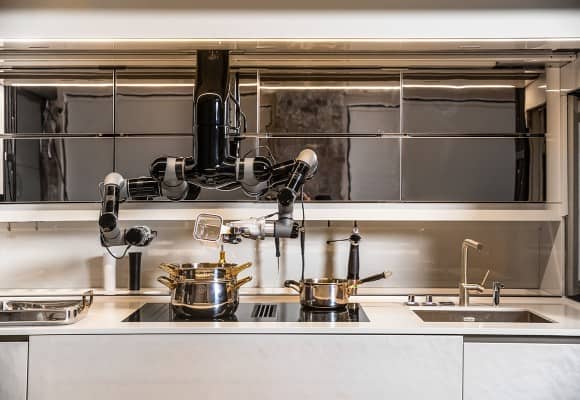
Moley Robotics
Founder/s: Mark Oleynik
Founded year: 2015
Funding: £1M
London-based Moley Robotics develops robotic kitchen with oven, hob, sink, and two dexterous robotic arms that allow it to cook and clean. The company develops solutions for the restaurant industry, airlines, kitchen developers, and chef training schools.
This futuristic robot startup raised £920,000 from nearly 200 investors via crowdfunding in 2016. Initially, it targets to raise £1 million for its new chef robots.
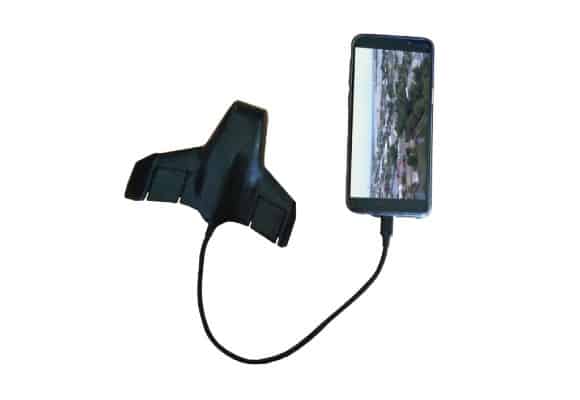
Flare Bright
Founder/s: Kelvin Hamilton, Conrad Rider
Founded year: 2015
Funding: NA
UK robotic company Flare Bright specialises in its UAS product SnapShot, which is designed to be the lightest and simplest way to get aerial images at the single press of a button.
In January this year, Flare Bright won two Innovate UK Future Flight grants for projects totalling £418K. These projects will receive a share of £30 million funded by the Future Flight Challenge from UK Research and Innovation through the Industrial Strategy Challenge Fund. Both projects started late in 2020 and will last 18 months.

You must be logged in to post a comment.